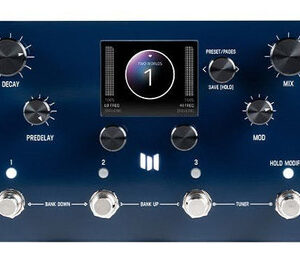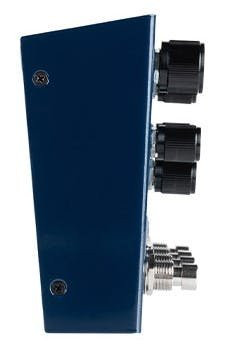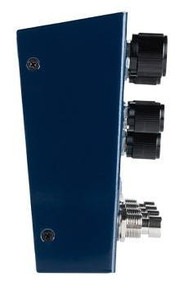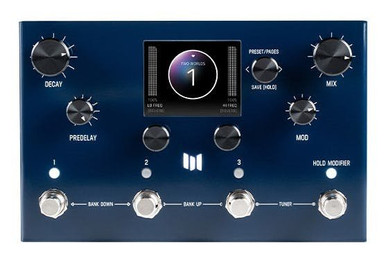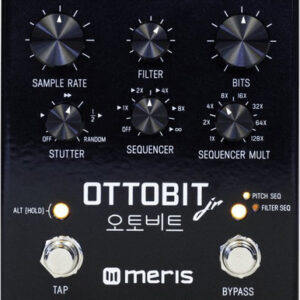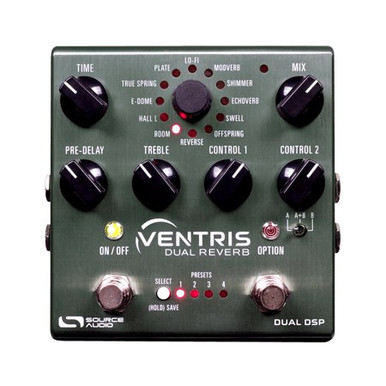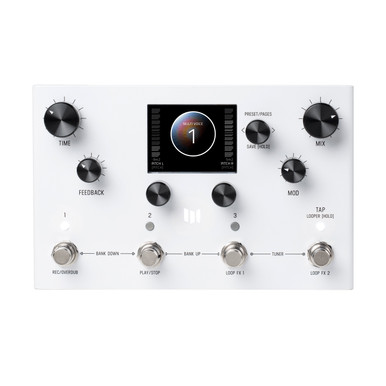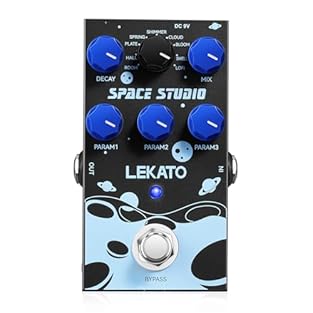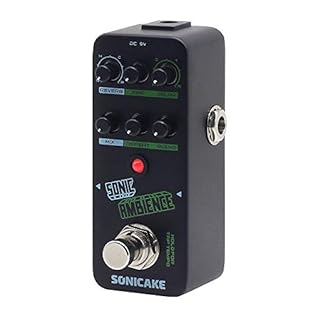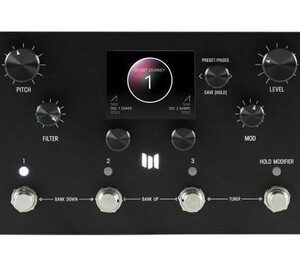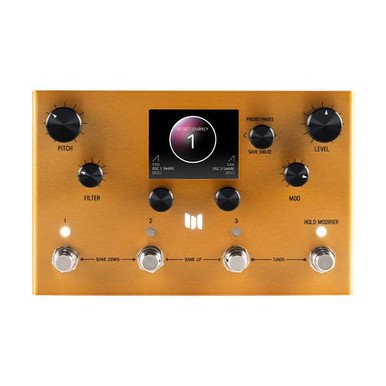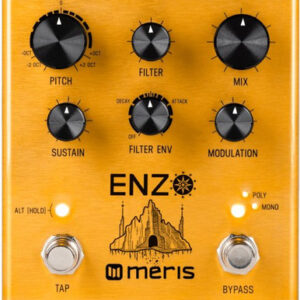Description
Fresh on the menu for 2026 are the Meris Guitar Pedals, freshly added and carefully selected. These New units are available to order online with fast, secure delivery from trusted UK retailers. Read on for full details, specifications, demos, videos, reviews, and the best places to buy the Meris Guitar Pedals today.
The Meris MercuryX takes the heart and soul of the Mercury7 and morphs itself into one of the most flexible studio reverbs ever to be created, in a compact pedal format. Its modular reverb system format breaks the paradigm of pre-set reverb types and inspires new discoveries!
MercuryX combines 8 custom Meris reverb algorithms and incorporates those into a modular system featuring discrete processing elements and control signal modifiers that can be connected as desired for infinite flexibility in crafting custom reverbs.
Key Features
- Simple to use Interface – This pedal is simple and user-friendly to navigate, meaning you have more time to dial in whatever creative Reverb you like, using the Intuitive Colour Screen based User Interface.
- 99 Preset Locations in 33 Banks – Save all of your favourite presets so you always have access to your favourite settings, and plenty of space to save all of your experimental tones.
- Stereo Outputs – Stereo input and output with separate jacks for each, meaning you are able to connect the MercuryX to the rest of your gear easily, and in multiple different ways.
8 Custom Meris Reverbs
- Ultraplate – Adapted from Mercury7 – an inspiring and lush plate with a fast build.
- Cathedra – Adapted from Mercury7 – a massive and ethereal algorithm with a slow build, perfect for sci-fi textures.
- 78 Room – A flexible algorithm that can be voiced to replicate both the amp-based reverb sounds and the classic studio spring tanks.
- 78 Plate – A lively and direct sound – great for transforming static sounding virtual amps into a great amp live in the room with you.
- 78 Hall – A large hall with a medium build-up of reflections -great for building up ambient walls of sound.
- Spring – A flexible algorithm that can be voiced to replicate both amp-based reverb sounds and classic spring tanks.
- Prism – A dual tank that allows you to build your own geometric rooms by specifying the size and distance and reflectivity.
- Gravity – This works by accelerating individual windows of your signal and stretching them across – great for adding pad textures beneath to your sound.
